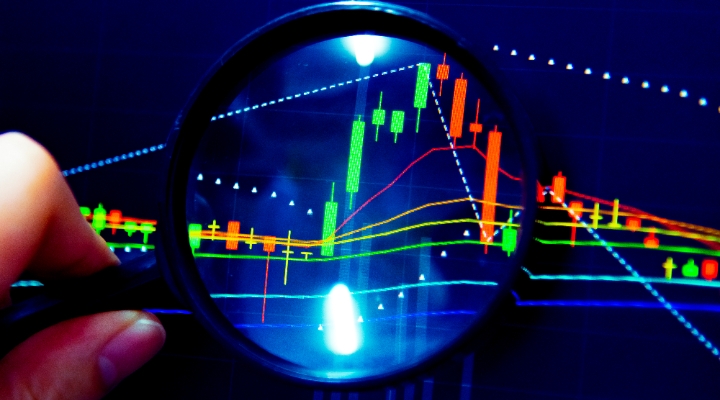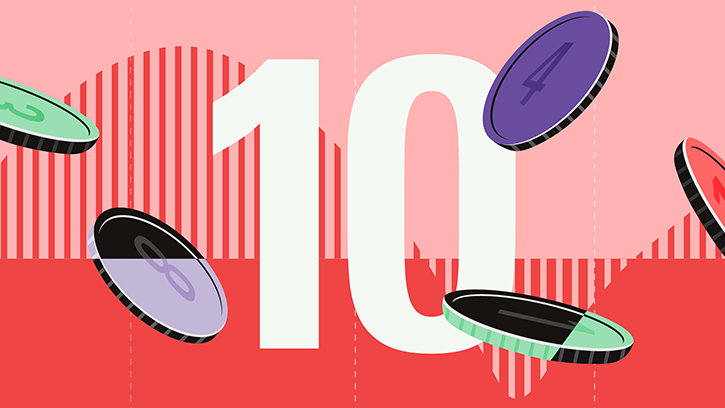Read more on ethical and sustainable investing in Morningstar's Ethical Investing Week 2013.
Ethical investment may have the moral high ground but there are certain not-so-nice companies that rake in the cash from sinful enterprise.
Sin stocks, as they are called, are the sort of companies that would not pass the stock screening of an ethical fund. These sectors include alcohol, animal testing, tobacco, oil and armament firms. They can also include companies that are involved in human rights issues, nuclear energy development, intensive farming and even in some cases the use of fur. Companies that kick out large carbon omissions are also on the sin list.
Tobacco stocks such as British American Tobacco (BATS), Philip Morris International (PM) and Imperial Tobacco Group (IMT) are good examples of successful sin stocks.
Despite two significant industrial threats in the past 20 years, tobacco stocks continue to pay out inflation-busting dividends, and if BATS results are indicative of the sector as a whole, this looks set to continue. Many industry analysts have been quick to write off tobacco companies. When the medical profession first revealed the damage cigarettes do to users' health, it was predicted that the developed world would stub out on mass.
Fund managers such as Colin Morton, of the Franklin UK Equity Income fund (![]() rated Bronze) hold tobacco companies for their reliable yield. He said he was not concerned by the stocks' so-called 'sin' status. “Every company in my fund pays a dividend – it’s got to earn the right to be there, and tobacco stocks have more than earned their place,” Mr Morton said earlier this year.
rated Bronze) hold tobacco companies for their reliable yield. He said he was not concerned by the stocks' so-called 'sin' status. “Every company in my fund pays a dividend – it’s got to earn the right to be there, and tobacco stocks have more than earned their place,” Mr Morton said earlier this year.
“Tobacco companies have very low amounts of debt and offer investors inflation protection, as every year the Government whacks the duty up and the companies put prices up.”
Drinks company Diageo (DGE), which makes - among others - Baileys, Gordons, Smirnoff and Johnnie Walker - has not changed its valuation or yield for three years.
It delivers a steady yield of 2.3% and the share price has increased on average 13% every year for the past decade.
Mr Morton tipped drinks company Diageo for its ability to continue to roll out the same products year after year – at a steadily increasing price to the consumer.
“A bottle of Johnnie Walker Black Label whisky has been the same for decades – there are future bottles maturing in casks as we speak to be decanted in years to come. There is no need for any product innovation apart from maybe a slight tweak to the label or a controlled increase to the price. That is the kind of business we like as an investor,” Mr Morton said.
Luxury goods company LVMH Moet Hennessy Louis Vuitton (LVMH) which produces champagne, wine and cognac yields 2.1% and the share price has tripled over the past five years.
JP Morgan Global Consumer Trends fund invests in companies that benefit from enduring developments in global consumption, considering the key themes of aspiration, urbanisation and wellbeing. The ![]() Bronze rated fund invests in companies that produce champagne, luxury clothing and fast cars: all of which would fail to make the ethical grade but which have helped return investors 84% over the past five years.
Bronze rated fund invests in companies that produce champagne, luxury clothing and fast cars: all of which would fail to make the ethical grade but which have helped return investors 84% over the past five years.
It is not just consumables sin stocks that are thriving either. Las Vegas Sands (LVS), a gambling company that operates almost entirely on the Chinese island of Macau, was tipped by Neptune US Income fund manager Rebecca Edelman as a 'buy'.
The Chinese consumer loves to gamble and Macau is the only place they can legally do so. In one week the LVS site on Macau saw 1.5 people pass through its doors. The stock is paying a well-covered growing dividend - and even paying out a special dividend this year.
British listed Paddy Power (PAP) tells a similar story, while it does not have quite as impressive an income, the share price has increased on average 38% every year for the past five years.
Sin stocks reap the rewards of a growing middle class in emerging markets. Thanks to government dictated wage inflation Chinese professionals now have greater disposable incomes and are choosing to spend this extra cash on branded goods.
Alcohol and cigarettes popular in the West have aspirational appeal, and so investors in these sin stocks benefit.
































